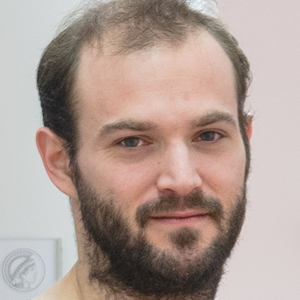Neuro-algorithmic Policies Enable Fast Combinatorial Generalization
Although model-based and model-free approa\-ches to learning the control of systems have achieved impressive results on standard benchmarks, generalization to task variations is still lacking. Recent results suggest that generalization for standard architectures improves only after obtaining exhaustive amounts of data. We give evidence that generalization capabilities are in many cases bottlenecked by the inability to generalize on the combinatorial aspects of the problem. We show that, for a certain subclass of the MDP framework, this can be alleviated by a neuro-algorithmic policy architecture that embeds a time-dependent shortest path solver in a deep neural network. Trained end-to-end via blackbox-differentiation, this method leads to considerable improvement in generalization capabilities in the low-data regime.
| Author(s): | Marin Vlastelica and Michal Rolinek and Georg Martius |
| Book Title: | Proceedings of the 2021 International Conference on Machine Learning (ICML) |
| Year: | 2021 |
| Month: | July |
| Project(s): | |
| Bibtex Type: | Conference Paper (inproceedings) |
| Event Name: | The Thirty-eighth International Conference on Machine Learning (ICML) |
| Event Place: | Virtual |
| Electronic Archiving: | grant_archive |
| Links: | |
BibTex
@inproceedings{VlastelicaEtal2021:NeuroAlgorithmic,
title = {Neuro-algorithmic Policies Enable Fast Combinatorial Generalization},
booktitle = {Proceedings of the 2021 International Conference on Machine Learning (ICML)},
abstract = {Although model-based and model-free approa\-ches to learning the control of systems have achieved impressive results on standard benchmarks, generalization to task variations is still lacking. Recent results suggest that generalization for standard architectures improves only after obtaining exhaustive amounts of data. We give evidence that generalization capabilities are in many cases bottlenecked by the inability to generalize on the combinatorial aspects of the problem. We show that, for a certain subclass of the MDP framework, this can be alleviated by a neuro-algorithmic policy architecture that embeds a time-dependent shortest path solver in a deep neural network. Trained end-to-end via blackbox-differentiation, this method leads to considerable improvement in generalization capabilities in the low-data regime.},
month = jul,
year = {2021},
slug = {vlastelicaetal2021-neuroalgorithmic},
author = {Vlastelica, Marin and Rolinek, Michal and Martius, Georg},
month_numeric = {7}
}


